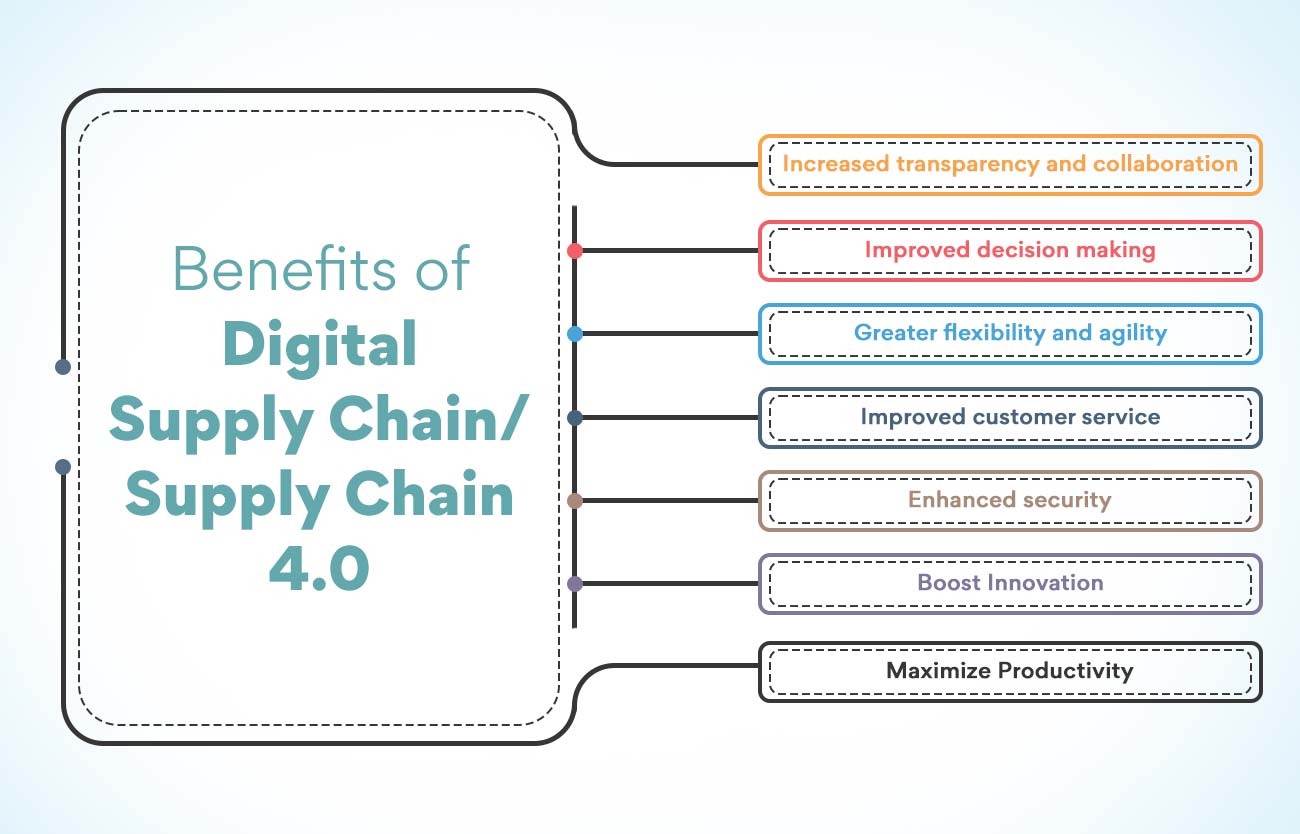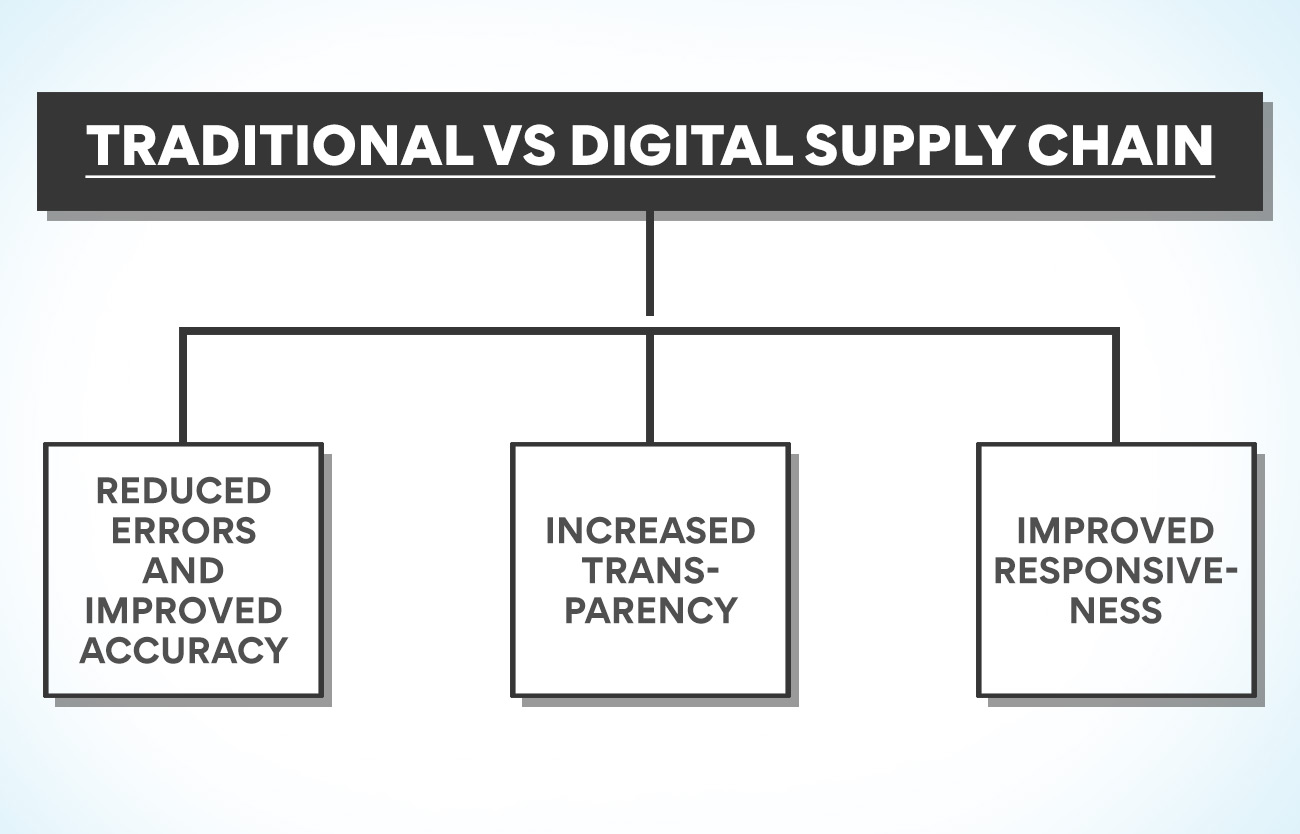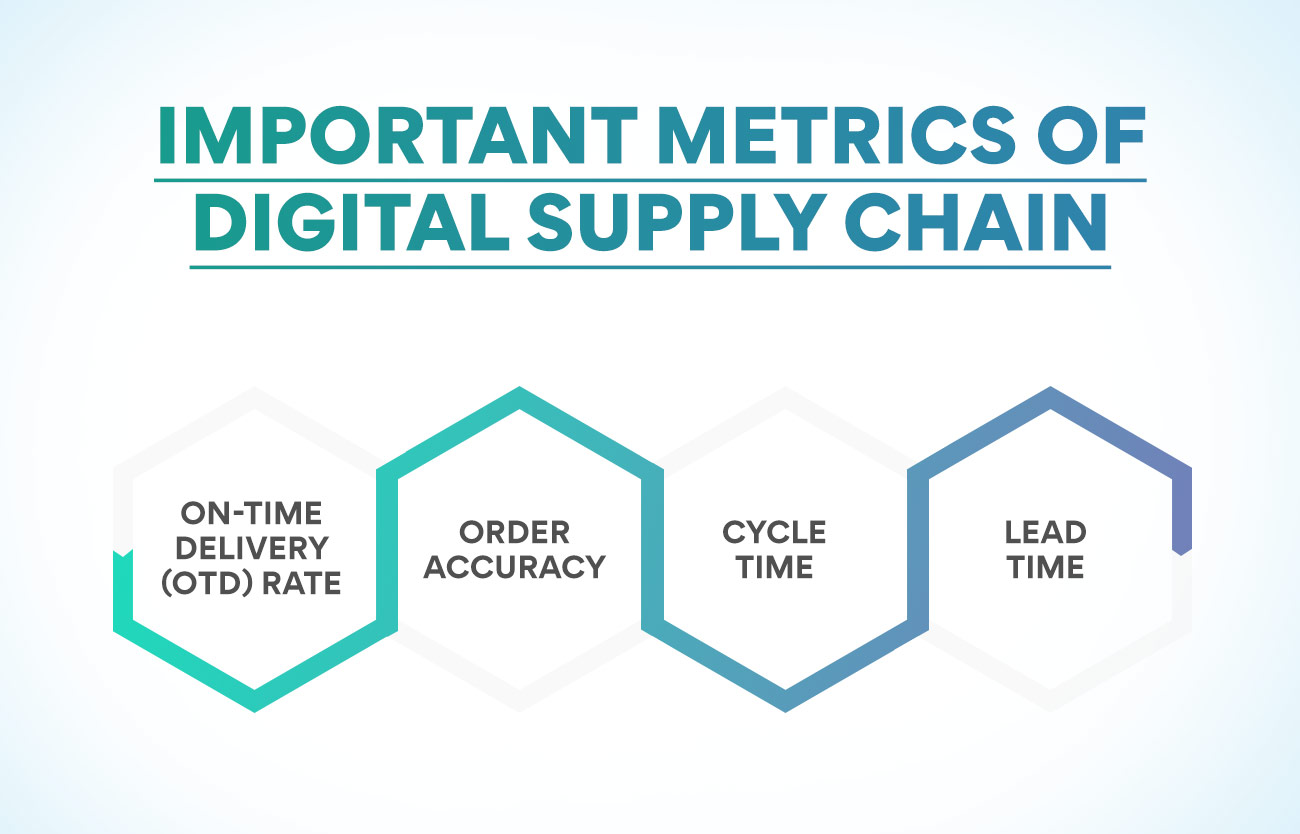What is Digital Supply Chain/Supply Chain 4.0?
In the digital age, everything is moving at a faster pace. We are constantly inundated with new technologies and innovations that change how we live and do business. The digital supply chain is one of these innovations. It is quickly becoming the future of logistics, and businesses that don’t adapt will be left behind.
The digital supply chain (DSC), or Supply Chain 4.0, is the future of logistics. It refers to how businesses will manage their operations in a digital world. It includes using smart devices, the internet of things, and artificial intelligence to streamline supply chains and improve efficiency. What is the digital supply chain, and what can it do for your business? Keep reading to find out!
Digital Supply Chain/Supply Chain 4.0 – The Next-Generation Supply Chain
In recent years, digital supply chains have become increasingly important in the business world. It is a connected network of people, processes, data, and things that enables the effective flow of information and goods from suppliers to customers. This new type of supply chain is made possible by technological advances, including the Internet of Things (IoT), big data, and cloud computing.
Digital supply chains offer many benefits over traditional supply chains, including increased visibility, greater flexibility, and improved efficiency. However, there are some challenges, such as the need for new skills and technologies and the risk of cyberattacks. However, digital supply chains are essential for businesses that want to stay competitive in the digital age.
Significance of DSC
The digital supply chain integrates digital technologies into all areas of the supply chain. This includes using digital technologies to manage the flow of information, goods, and services from supplier to customer.
The DSC represents the next generation of supply chain management, where all aspects of the supply chain are connected and managed digitally.
Digital technologies are transforming how businesses operate and interact with customers and suppliers. The digital supply chain enables organizations to be more agile, efficient, and responsive to market changes. It also provides visibility into the entire supply chain, from end to end.
Benefits of Digital Supply Chain/ Supply Chain 4.0

When everyone is on the same digital platform, it’s easy to track progress, identify potential issues, and make changes in real-time. This increased transparency leads to better collaboration among all supply chain members. It will help you avoid disruptions and keep your customers happy.
Improved decision making
You can gather and analyze data more quickly and effectively with digital tools. This allows you to make better decisions about your supply chain, leading to improved efficiency and cost savings.
Greater flexibility and agility
A digital supply chain is more agile and flexible than a traditional one. That means it can adapt quickly to changes in demand or the marketplace. It is critical in today’s fast-paced business environment. With a digital supply chain, you can promptly address customer needs and stay ahead of the competition.
Improved customer service
Digital tools can help you better understand your customers’ needs and preferences. That way, you can tailor your offerings to their specific wants and needs leading to improved customer satisfaction and loyalty.
Enhanced security
It’s easier to protect your digital data than to safeguard physical assets. With a digital supply chain, you can use security measures like encryption and access control to protect your data. It will reduce the risk of theft, fraud, and other malicious activity.
Boost Innovation
It can help you drive innovation in your business. By gathering data and using analytics, you can identify new opportunities for improvement. You can also use digital tools to test new ideas quickly and cheaply. This allows you to take risks and try new things without jeopardizing your entire operation.
Maximize Productivity
The digital supply chain can help you get the most out of your workforce. Automating tasks and using digital tools can free up your employees’ time to focus on more value-added activities. Eventually, it will lead to enhanced productivity and efficiency in your operation.
These are just some of the benefits of a DSC. As you can see, it’s a powerful tool to help your business succeed. Now is the time to start if you’re not using digital tools in your supply chain. We can help you provide a superior edge to set foot in supply chain management. We have a certificate course that will enlighten you on the grounds of the digital supply chain.
Traditional Vs Digital Supply Chain
The digital supply chain is the future of logistics. It’s a new way of thinking about supply chains that leverage digital technologies to create efficiencies and optimize performance.

In contrast, traditional supply chains rely on manual processes and often involve paper-based documentation. This can lead to errors and inefficiencies, as well as increased costs. Digital supply chains offer several advantages over traditional supply chains, including:
Reduced errors and improved accuracy: By automating processes and using digital technologies, digital supply chains can reduce the likelihood of errors. This can lead to improved accuracy and efficiency throughout the supply chain.
Increased transparency: Digital supply chains offer increased transparency thanks to real-time data tracking. This allows businesses to have a clear view of their supply chain at all times, which can help to identify issues and optimize performance.
Improved responsiveness: As digital supply chains are powered by real-time data, they are more responsive than traditional supply chains. This means that businesses can quickly alter to changes in demand or other factors, ensuring that the supply chain is always running efficiently.
The digital age has completely disrupted how businesses operate and has led to the rise of new business models that were probably unthinkable a few decades ago. One of the most critical changes that companies have had to adapt to is the way that they manage their supply chains.
Traditionally, supply chains were managed manually with paper-based documentation. However, this is no longer feasible in the digital age. Businesses need to be able to manage their supply chains electronically in order to keep up with the competition. This is where digital supply chains come in.
Important Metrics Of Digital Supply Chain
The digital supply chain is a term that is used to describe the digitalization of traditional supply chains. The digital supply chain encompasses all aspects of the supply chain, from sourcing to manufacturing to logistics and delivery. Digital supply chains are designed to be more agile and responsive to demand changes, allowing for greater efficiency and cost savings.

To manage it properly, it is essential to understand some of the key metrics used to measure its performance. These metrics include:
On-time delivery (OTD) rate: This metric measures the percentage of orders that are delivered on time. OTD rates can be improved by ensuring that there are sufficient inventory levels, proper staff scheduling, and efficient transportation planning.
Order accuracy: It measures the percentage of orders that are filled correctly. It can be enhanced by ensuring proper communication between all parties involved in the order process, including suppliers, manufacturers, and logistics providers.
Cycle time: It helps in measuring the amount of time it takes to complete an order, from the time it is placed until it is delivered to the customer. Cycle times can be reduced by streamlining processes and improving coordination between all parties involved.
Lead Time: It measures the amount of time it takes for an order to be delivered from the supplier to the customer. Lead times can be reduced by ensuring that suppliers are located close to manufacturing and logistics facilities.
Digital supply chains are revolutionizing the way businesses operate and compete in today’s global market. By understanding some of the key metrics used to measure digital supply chain performance, businesses can ensure that they are properly managing their digital supply chains and reaping the benefits of this new technology.
What Are The Challenges Associated With It?
The digital supply chain is a hot topic in the logistics industry. Many companies are looking to adopt digital technologies to improve their operations. However, there are some challenges associated with this transition.
One challenge is that digital supply chains are often more complex than traditional ones. This complexity can make it challenging to manage and optimize the system. Additionally, digital supply chains often rely on data from multiple sources, which can be difficult to integrate.
Another challenge is that digital technologies are constantly changing and evolving. This means that companies need to be able to quickly adapt their systems to keep up with the latest innovations. Additionally, digital technologies can be expensive to implement and maintain.
Despite these challenges, many companies are still looking to adopt digital technologies to improve their operations. Digital supply chains offer several benefits, such as improved visibility and efficiency. Moreover, digital supply chains can help companies respond better to customer demands.***
Examples of DSC
Coca-Cola is a widely recognized brand across the globe. The company has achieved this level of success by leveraging digital supply chain management techniques. By utilizing digital tools and technologies, Coca-Cola has been able to optimize its supply chain operations, resulting in increased efficiency and productivity.
The digital supply chain of Coca-Cola is an excellent example of how digital tools and technologies improve supply chain management. By leveraging DSC management techniques such as digital asset management and digital order management, Coca-Cola has been able to optimize its supply chain operations, resulting in increased efficiency and productivity.
Growing Career Opportunities In Digital Supply Chain Management
The digital supply chain is the next-generation supply chain that interconnects digital technologies to other areas of the supply chain, from the initial customer order to the final delivery. This process enables companies to have a more efficient and effective supply chain by reducing costs, improving communication and collaboration among suppliers, and increasing transparency throughout the entire process.
Digital supply chains are becoming increasingly popular in today’s business world, as they offer a number of advantages over traditional supply chains. Perhaps the ability to connect all members of the supply chain, from suppliers to customers, in real-time is the most important benefit. It allows better communication and collaboration among all parties involved in the process.
Additionally, digital supply chains are often more efficient and effective than traditional ones, as they use digital technologies to streamline the process. For example, digital supply chains often utilize automated processes and data analytics to optimize the flow of materials and information. Significant cost savings for businesses can be achieved by implementing digital supply chains.
Digital supply chains are becoming increasingly important in today’s business world. Companies implementing digital supply chains effectively will be well-positioned to gain a competitive advantage. Undoubtedly, there is a growing demand for professionals with the skills and knowledge necessary to manage digital supply chains. As such, many career opportunities are available for those interested in this field.
If you’re interested in this area, you should know a few things. First, digital supply chains are complex and ever-changing. As such, it’s essential to have a strong understanding of digital technologies and how they can be used to improve supply chain management. Additionally, it’s essential to be able to communicate effectively with all members of the digital supply chain, as well as have strong problem-solving skills.
If you have the skills and knowledge necessary to manage digital supply chains effectively, many career opportunities are available. With the blend of the right training and experience, you can become a digital supply chain manager, analyst, or even a DSC consultant. Check out our Advanced Certificate in Operations, Supply Chain, and Project Management to learn more about supply chain management and embrace the growth potential this industry holds. It is the ideal course for professionals and aspiring supply chain managers to get a head start.


























